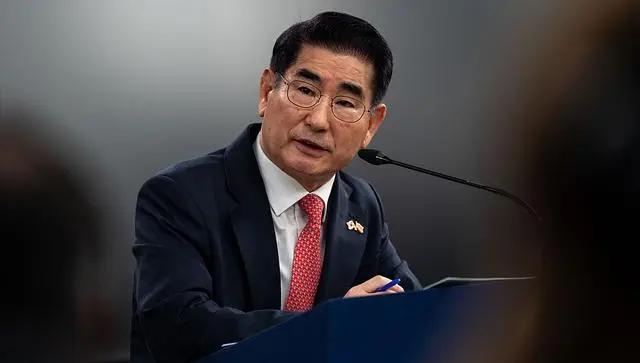Military Reform and Political Crisis: A Deep Dive into South Korea's Emergency Martial Law Declaration
South Korea’s Defense Minister Kim Ryong-jin resigned after a failed attempt to implement martial law, exposing deep rifts within the military and political establishment. This event highlights the complex dynamics between civilian leadership and military authority in South Korean politics.

The recent political drama in South Korea surrounding Defense Minister Kim Ryong-jin’s resignation reveals far more than a simple leadership change. At its core, this incident exposes fundamental weaknesses in President Yoon’s administration and military command structure.
The martial law implementation attempt proved remarkably inefficient. Elite units like the 707th Special Mission Brigade and air transport units - supposedly South Korea’s finest military forces - demonstrated surprisingly low combat readiness. Their performance fell short, unable to effectively control civilian protestors or prevent elderly legislators from scaling walls to enter the National Assembly building.
A critical factor behind this failure lies in the deteriorating conditions within South Korea’s military. Under President Yoon’s administration, military welfare has significantly declined. The government’s three-year plan reduces soldiers' food allowances from 4,333 won to 3,000 won per meal and eliminates special holiday meal benefits. This policy affects troop morale and loyalty at fundamental levels.
The command structure also showed serious flaws. While top military officials initially supported the martial law declaration, mid-level officers and enlisted personnel demonstrated reluctance in executing orders. Many units arrived with training ammunition or even without ammunition magazines, suggesting intentional non-compliance with martial law directives.
The opposition’s response proved remarkably well-organized. Democratic Party leader Lee Jae-myung effectively mobilized parliamentary resistance, coordinating with other opposition members to maintain legislative functions despite military presence. The parliament successfully convened and passed resolutions against martial law, effectively neutralizing the administration’s efforts.
Historical parallels make this incident particularly noteworthy. Previous successful implementations of martial law in South Korea, such as in the “December 12 Incident,” succeeded through careful preparation and clear command structures. The recent attempt lacked both elements, resulting in what many observers characterize as a strategic and tactical failure.
This event’s implications extend beyond immediate political consequences. It reveals deep structural issues within South Korea’s military establishment and raises questions about civil-military relations. The resignation of Defense Minister Kim represents not just a personal career end, but symbolizes broader challenges in South Korea’s democratic governance and military modernization efforts.